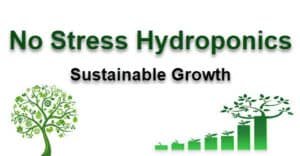
Do you dream of harvesting fresh corn right from your own backyard? Well, with hydroponic corn farming, it’s easier than ever before! Hydroponic culture is an emerging soil-less form of agriculture that has been gaining worldwide attention in recent years.
It involves the submersion of plant roots in a nutrient solution which offers a more efficient and sustainable method for growing crops. Here we will guide you on how to get started with hydroponic corn farming and why this type of gardening is becoming so popular amongst farmers and gardeners alike.
Why Start A Hydroponic Corn Farm
Starting a hydroponic corn farm offers many advantages compared to conventional and organic farming. Hydroponic farms have a much higher yield and use less acreage, making them more economical. Hydroponic corn can also be grown year-round, regardless of the weather or season, so there are no worries about unpredictable weather conditions that can affect crops.
Because hydroponics uses almost exclusively water and nutrients to grow plants, it is an eco-friendly way to produce food. Farming with hydroponics has been implemented around the world in small-scale community settings as well as at commercial levels, proving its immense impact on local economies and sustainable farming practices. The start up cost for a hydroponic corn farm is relatively low; consumers just need access to clean water, enough space for their set-up, nutrient solutions and perhaps some extra lighting or cooling systems depending on the setup. With all these benefits taken into account, it is clear why starting a hydroponic corn farm is an attractive option for any aspiring farmer.
How To Get Started With Hydroponic Corn Farming?
Hydroponic corn farming is an innovative way to grow your own corn in a controlled environment. While this type of farming may seem intimidating at first, it’s actually quite simple when you break it down. To get started with hydroponic corn farming, all you need is a large watertight container such as a tank or bathtub filled with nutrient-rich water that can provide the plants with nutrients through the growing season.
Once your container is set up and filled, you’ll want to obtain organic seedlings from your local nursery or grower that suits your needs. After transplanting the seedlings into the container, ensure to monitor them regularly for insects and other pests, as well as for any nutrient deficiencies. For best results, seek out advice from experienced hydroponic farmers who know how to properly tend to and harvest crops so you can enjoy a successful yield of delicious corn!
Benefits Of Hydroponic Corn Farm
Hydroponic corn farming has a number of benefits, including:
Reduced water usage
The recycling process used in hydroponic systems cuts down on the amount of water needed to grow crops. This saves resources and money, as well as helping to conserve precious water.
Minimized fertilizer use
Hydroponic systems use nutrient solutions, so there is no need to add extra fertilizer or pesticides. This means that the corn grown using hydroponic methods will be healthier and more environmentally friendly.
Faster growing
Since the plants are grown in a sterile environment, with ideal temperatures and access to nutrients, they tend to grow quickly with fewer problems. This means that harvests can be completed faster, and more corn is available to the market.
Less space needed
Hydroponic systems take up less space than traditional farming, meaning that it’s possible to produce a larger yield of corn with the same amount of land. This has obvious advantages in terms of production costs.
Perfect environment
Unlike outdoor farming, the conditions in a hydroponic system can be closely monitored and controlled. This means that the plants will always have access to ideal temperatures, light, and nutrients for optimal growth.
More consistent quality
Because the plants are grown in ideal conditions, they are much more likely to produce high-quality corn. This means that you can guarantee a certain standard of product, which is important for commercial operations.
Overall, hydroponic corn farming is an efficient way to produce large amounts of healthy crops without sacrificing quality or the environment. It’s an ideal choice for those looking to reduce their environmental footprint while still growing nutritious food.
Is A Hydroponic Corn Farm Worth it?
The concept of a hydroponic corn farm is an intriguing one. The concept involves growing corn without soil, instead relying on the nutrient-rich water needed to make plants thrive. The idea has been developed and promoted by many in the agricultural industry as well as in the general public for years now, but is it actually worth doing? To answer that question, it’s important to consider some of the potential benefits this type of farming could bring.
For one, hydroponic corn farming uses less land than traditional soil-based farming methods; allowing farmers to produce greater yields with less land. Additionally, fewer resources such as water and fertilizer would be needed to grow the corn when compared to traditional methods. Finally, this type of farming could potentially reduce carbon footprints due to its non-soil based growing operations. Ultimately, the notion of hydroponic corn farming is certainly worth considering – especially if you are looking for innovative ways to maximize yields while reducing environmental impacts.
Conclusion
The average person can create a successful hydroponic corn system in their own home. With some time and effort, you could be well on your way to becoming a self-sufficient farmer. Are you interested in hydroponic corn farming? What questions do you have about getting started? Let us know in the comments below.
